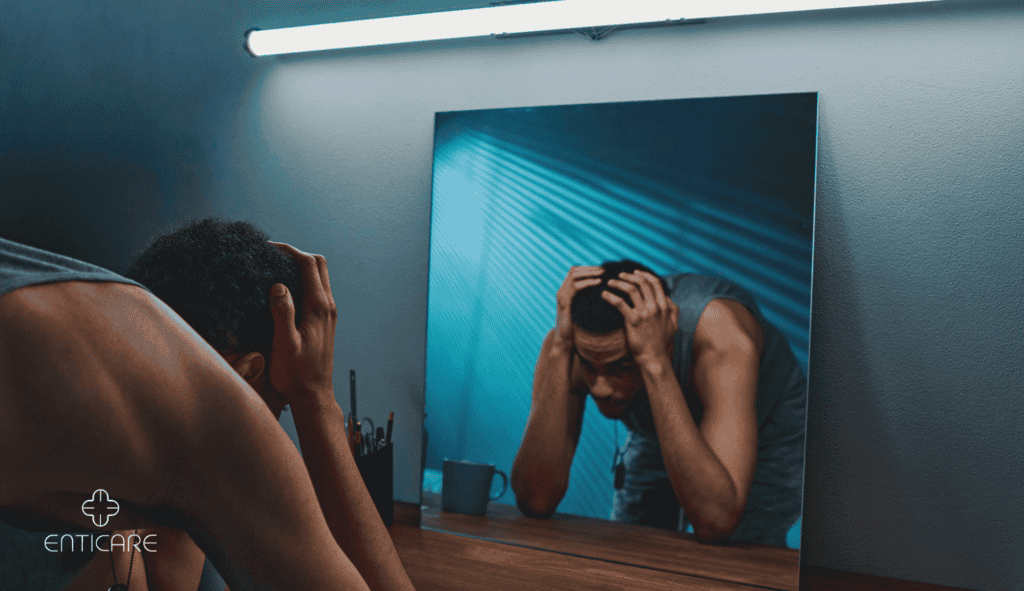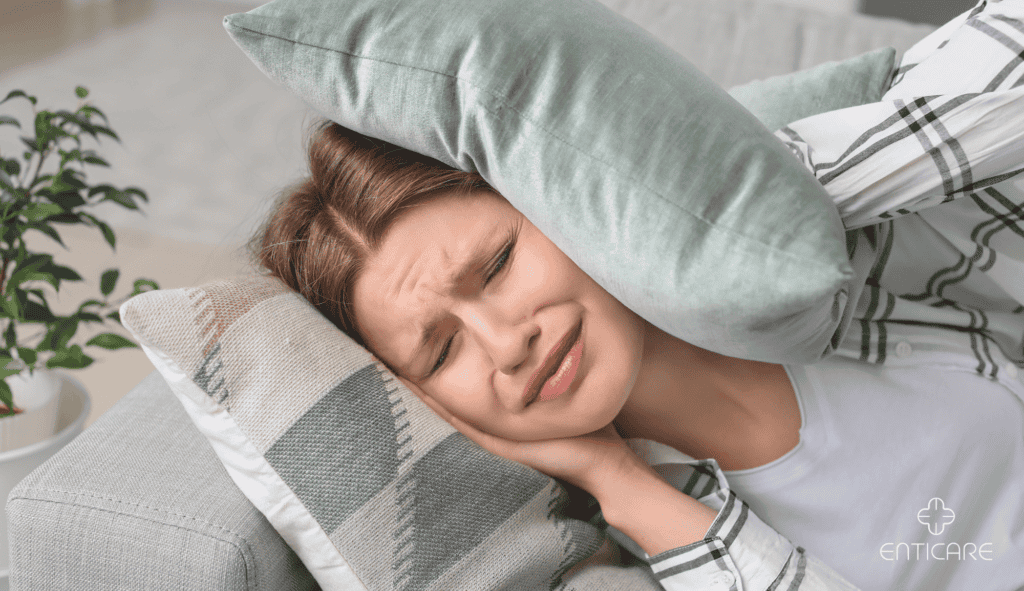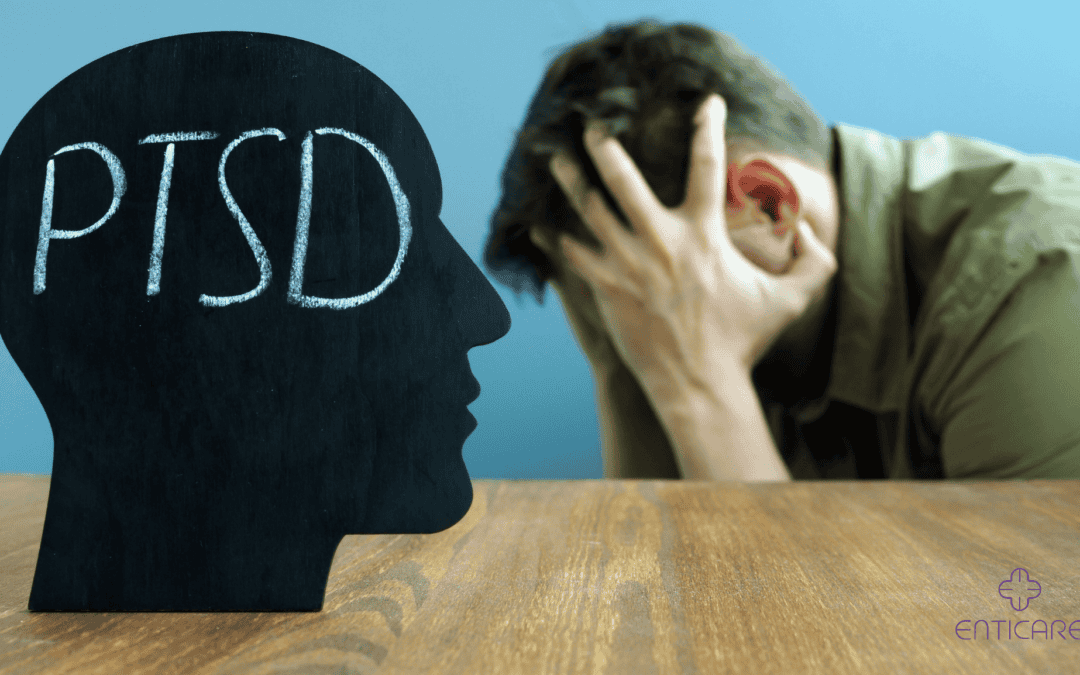Post-Traumatic Stress Disorder (PTSD) affects millions worldwide, leaving them with lasting scars from traumatic experiences. High frequency sounds, such as sharp, piercing noises, can exacerbate PTSD symptoms, causing pain and discomfort. Complex PTSD, a more severe form of PTSD, can exacerbate mental health issues, particularly noise sensitivity and intense emotional responses. While flashbacks and emotional responses are common symptoms, loud noises often trigger overwhelming distress for individuals with PTSD. In this blog, we’ll explore the connection between loud noises and PTSD, how it impacts daily life, and what steps you can take to manage these triggers.
If loud noises significantly impact your well-being or you suspect PTSD may be involved, understanding the relationship between these two factors is crucial. Let’s dive into the details, discuss coping strategies, and explore how professional support can help.

What is PTSD, and How Does it Relate to Loud Noises?
Defining PTSD
Post-Traumatic Stress Disorder (PTSD) is a mental health condition triggered by a traumatic event, such as military combat, natural disasters, assaults, or accidents. PTSD can manifest in various ways, including intrusive memories, emotional numbness, and hyperarousal, leaving individuals on constant alert for potential danger.
Hyperarousal and Startle Reflex
One of the hallmark symptoms of PTSD is hyperarousal. This heightened state of alertness makes sufferers more sensitive to stimuli, especially unexpected loud noises and high frequency sounds. A car backfiring, fireworks, or sudden banging can trigger the startle reflex, causing an intense fight or flight response characterized by fear, anxiety, or panic.
Trauma and Loud Noises: A Memory Connection
Loud noises often serve as reminders of the original trauma, particularly for veterans and survivors of violence. Explosions or gunfire may trigger flashbacks of war zones, while sudden sounds can transport individuals back to moments of high-stress situations. This memory connection amplifies the emotional and physical response to everyday noises.
The Psychological and Physiological Effects of Loud Noises on PTSD
Heightened Anxiety and Panic Attacks
For someone with PTSD, difficulty tolerating sounds means that loud noises can cause an immediate spike in anxiety levels. The brain perceives the noise as a threat, flooding the body with stress hormones like adrenaline. This response can escalate into a full-blown panic attack, marked by rapid heart rate, shortness of breath, sweating, and a feeling of impending doom.
Sleep Disturbances and Sound Sensitivity
Loud noises can interfere with the sleep of PTSD sufferers, further exacerbating symptoms. Sudden sounds during the night can jolt individuals awake, leading to nightmares or an inability to fall back asleep. Over time, these sleep disturbances worsen mental and physical health, contributing to chronic fatigue, irritability, and heightened stress.
Emotional Dysregulation
Loud noises often provoke an emotional response and emotional dysregulation in individuals with PTSD, meaning they may struggle to control their emotions when triggered. A simple noise that may be insignificant to others can cause an extreme emotional reaction, such as anger, sadness, or overwhelming fear. This emotional imbalance affects relationships, work, and overall quality of life.

Common Trigger Sounds for PTSD Sufferers
Fireworks and Explosions
Fireworks, explosions, or even celebratory gunfire on holidays like New Year’s Eve or Independence Day can cause severe distress for individuals with PTSD. The unexpected bangs can resemble battlefield sounds, causing individuals to relive traumatic events.
Sirens and Alarms
Emergency sirens, car alarms, or fire alarms can be overwhelming. For PTSD sufferers, these sounds often trigger memories of danger or violence, causing immediate hypervigilance and anxiety.
Crowded or Chaotic Environments
Environments filled with loud, chaotic noises—such as concerts, sporting events, or busy streets—are common in everyday life and can easily trigger PTSD symptoms. These sounds overload the senses, making it difficult for individuals to stay calm and centered in such situations.
Coping Strategies for Managing Loud Noise Triggers
Identifying Personal Triggers
The first step to managing loud noise triggers is identifying which specific sounds cause distress. By recognizing what types of noises or environments trigger your PTSD, you can better prepare for potential encounters. For instance, if fireworks are a trigger, making a plan to avoid noisy events during holidays may help reduce the risk of panic.
Grounding Techniques
Grounding techniques help bring you back to the present moment when loud noises trigger distress. Deep breathing exercises, focusing on physical sensations like the feel of the ground under your feet or counting backward from ten, can help your mind break free from the panic loop.
Sound Therapy and Noise-Canceling Devices
Noise-canceling headphones or earplugs can provide a sense of relief for individuals experiencing sound sensitivity in loud environments. Additionally, sound therapy—such as listening to soothing nature sounds or white noise—can desensitize your brain to sudden noises, reducing anxiety over time.

When to Seek Professional Help for Noise-Triggered PTSD
Cognitive Behavioral Therapy (CBT)
Cognitive Behavioral Therapy (CBT) is a proven approach to manage PTSD symptoms. CBT helps you change the negative thought patterns that arise when loud noises trigger panic. By working with a therapist, you can learn to reframe these experiences and reduce their emotional impact.
Exposure Therapy
PTSD treatment, including exposure therapy, is another effective method for PTSD sufferers. It involves gradually exposing individuals to the triggers in a safe and controlled environment. Over time, exposure helps desensitize individuals to loud noises, reducing their intense reactions and fear.
Hearing and Mental Health Support
Trauma survivors who find their PTSD symptoms triggered by loud noises should also consider seeking help from specialists who understand the connection between hearing health and mental health. Clinics like ENTicare offer comprehensive support for individuals dealing with these challenges. Their team provides personalized strategies to help you manage noise-related triggers and improve your quality of life.
Reclaim Your Peace from PTSD Noise Triggers
Loud noises and specific trigger sounds can deeply impact individuals with PTSD, triggering memories of trauma and causing severe emotional and physical reactions. However, you don’t have to let these noise triggers control your life. By identifying your triggers, utilizing coping strategies like grounding techniques, and seeking professional help through therapy and hearing specialists, you can regain control over your responses and reduce the disruptive effects of loud sounds.
If you or a loved one struggles with PTSD triggered by loud noises, take action today. Schedule an appointment with our team at ENTicare to get the support and tools you need to start healing and reclaiming your peace.
For more information on PTSD and noise triggers, explore this resource for a deeper understanding of how hypervigilance affects those with PTSD.

